ChatGPT: Who and what is behind the artificial intelligence tool changing the tech landscape
Tech experts say that OpenAI has prioritized investors and profit over their altruistic intentions
ChaptGPT technology will change the human-computer interface: Thomas Siebel
Deloitte AI Institute executive director Beena Ammanath and C3.ai CEO Thomas Siebel discuss ChatGPT's risks and how it should be integrated into society on 'The Claman Countdown.'
Since the introduction of the artificial intelligence tool ChatGPT in November 2022, the new technology has displayed the power and potential that AI can have on our lives.
Open AI CEO Sam Altman, the company behind ChatGPT, admitted earlier this month that he was even "a little bit scared" of the powerful technology his company is developing. While Altman predicted that artificial intelligence "will eliminate a lot of current jobs," he has said the technology will be a net positive for humans because of the potential to transform industries like education.
But who is Sam Altman, and what is behind this new technology?
MARK CUBAN ISSUES DIRE WARING OVER CHATGPT
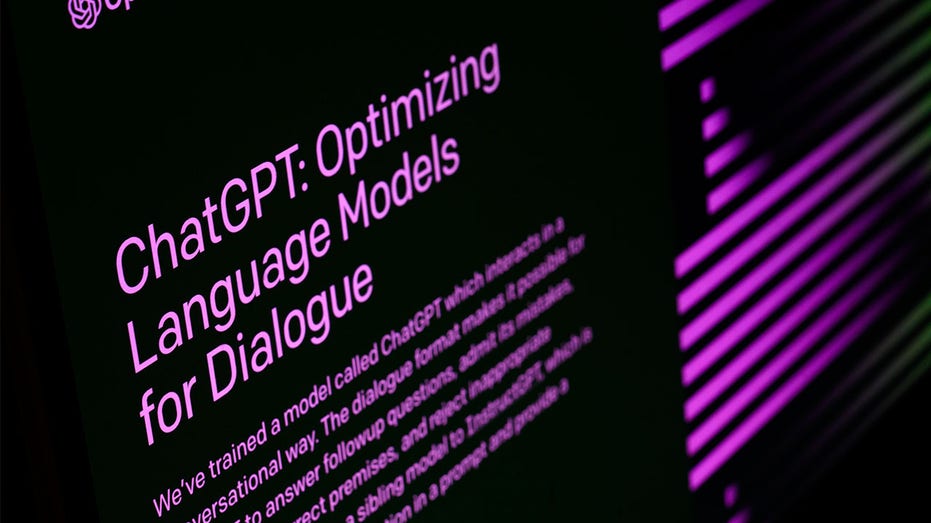
In this photo illustration, the welcome screen for the OpenAI "ChatGPT" app is displayed on a laptop screen on February 03, 2023 in London, England. (Leon Neal/Getty Images / Getty Images)
ChatGPT is an artificial intelligence chatbot whose core function is to mimic a human in conversation. Users across the world have used ChatGPT to write emails, debug computer programs, answer homework questions, play games, write stories and song lyrics, and much more.
"It is going to eliminate a lot of current jobs, that’s true. We can make much better ones. The reason to develop AI at all, in terms of impact on our lives and improving our lives and upside, this will be the greatest technology humanity has yet developed," Altman said in a recent interview with ABC News. "The promise of this technology, one of the ones that I'm most excited about is the ability to provide individual learning — great individual learning for each student."
Altman has made numerous business deals over the last several years, because of the potential of his company's technology.
In January, OpenAI expanded its partnership with Microsoft, who will add almost $10 billion in new capital to the company. Microsoft, as a result of the deal, will likely acquire a large chunk of the company’s profits over the next several years (Microsoft previously invested $1 billion in OpenAI three years ago).
Furthermore, Microsoft is planning on implementing the tool into its existing ecosystem to be used in software like Microsoft PowerPoint, Excel and Teams.
Although the influx of cash has provided the company with more resources, it has reportedly divided its 300 some staffers and angered some in the field of AI, who believe the once humanitarian company is now primarily concerned with making a buck.
Dr. Mike Capps is the co-founder of Diveplane, an ethical AI company based in Raleigh, N.C. He was formerly president of Epic Games, the creators of Fortnite and Gears of War, for nearly a decade. He does not believe OpenAI would have been nearly as successful without that significant connection to Microsoft, but also expressed disappointment in some of the business decisions made by the ChatGPT creators.
"I feel a little bit like they sold their soul in order to speed things up, and they succeeded," he said.
Business moguls and AI researchers have also pointed to OpenAI’s broken promise of turning ChatGPT open source, allowing businesses and computer scientists to manipulate and tailor the tool to their liking, as another sign of the company’s increasingly profit-centric mindset.
"They swore up and down that they were going to give it all away because it’s the best way to handle this space, and now they’re not, they’re pulling things down, so you can’t recreate their work. It’s super frustrating," Capps added.
NASA Jet Propulsion Laboratory (JPL) Chief Technology and Innovation Officer Dr. Chris Mattmann told Fox News Digital that the trajectory of OpenAI directly mirrors the evolution of the Apache Software Foundation.
MUSK LOOKS TO BUILD CHATGPT ALTERNATIVE TO COMBAT ‘WOKE AI’: REPORT
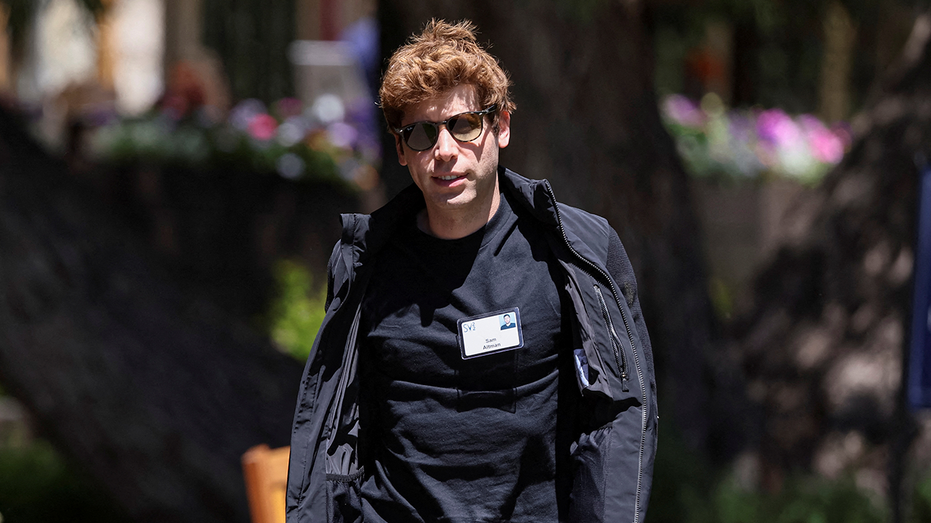
CEO of OpenAI Sam Altman attends the annual Allen and Co. Sun Valley Media Conference in Sun Valley, Idaho, U.S., July 6, 2022. (REUTERS/Brendan McDermid / Reuters Photos)
Created in 1999, Apache started out as an American nonprofit corporation to support open-source software projects, but overtime became a sort of "toxic place" that abandoned many of its original altruistic intents to pursue commercial interests, according to Mattmann.
"Even in a meritocracy there are still political controls and committees. It works a lot like dark money in government. It’s almost like the notion of dark money in tech," he said.
While their goals in the beginning largely revolved around data sharing agreements and scraping data for curation, the decision to take big donations created an inherent tension and pushed OpenAI into a situation where they had to work for the benefit of their investors.
"They don’t release their model. I would even give Meta more credit for releasing Llama and allowing people to download it. You can’t do that with OpenAI. You can’t download their models. You have to pay to play and that’s a lot different than what they said in the beginning," Mattmann added.
Earlier this year, OpenAI announced a waitlist for a commercial version of ChatGPT that will allow customers to sign up for a version of the bot that can be integrated into various product and businesses, for a fee.
While many technologies over the last two decades have seen fervent consumer interest, none have seen the type of rapid interest there is for ChatGPT.
"Remember how big mobile got? It’s so much faster than that. Remember how big Twitter got, this is faster," Capps claimed.
The first iteration of the artificial intelligence tool launched in November 2022 and crossed 1 million users in just 5 days.
In comparison, it took Netflix 41 months, Facebook 10 months and Instagram nearly three months to reach similar metrics.
The massive success of the technology has spurred countless debates about how and where it should be implemented, fact versus science fiction and recentered artificial intelligence as the hot topic among Silicon Valley boardrooms after years of big promises and false starts.
"It is so good at certain things and absolutely inappropriate forever and always at other things, and we just have to use it correctly," Capps added.
Large corporations are split on ChatGPT. While some have implemented the technology to improve the user experience, such as Netflix, others have outright banned ChatGPT in their ecosystems because of the lack of available knowledge and level of uncertainty.
ChatGPT has the potential to supplant entire businesses. For example, a company that created an artificial intelligence to read through and analyze legal documents could utilize ChatGPT, which can out the same functions at a much lower cost.
OPENAI DEBUTS CHAT GPT-4, MORE ADVANCED AI MODEL THAT CAN DESCRIBE PHOTOS, HANDLE MORE TEXTS
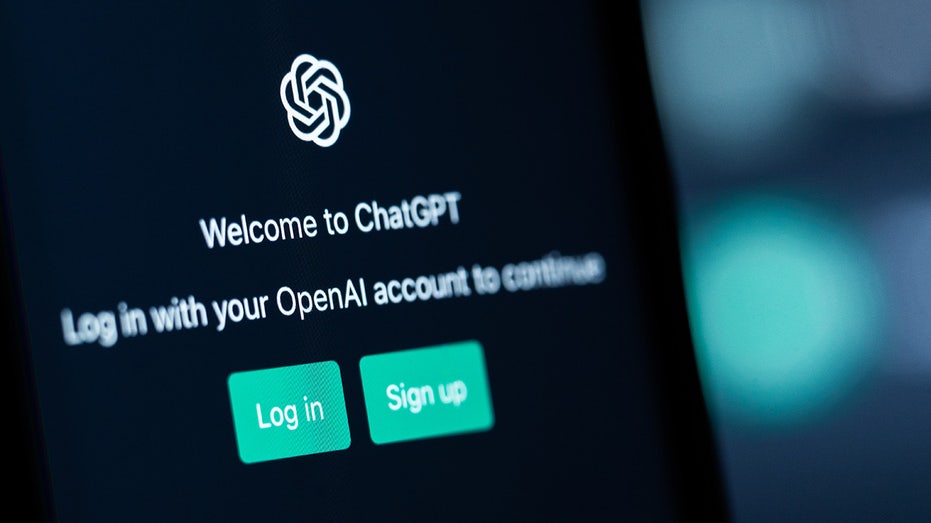
SYMBOL - 11 February 2023, Baden-Württemberg, Rottweil: The Welcome to ChatGPT lettering of the US company OpenAI can be seen on a computer screen. ((Photo by Silas Stein/picture alliance via Getty Images) / Getty Images)
ChatGPT, as opposed to large language models (LLMs) specifically designed for use in a specific area of expertise, is no savant in specialized knowledge, but can provide relatively detailed responses on a wide range of topics, even if the output is susceptible to inaccuracies and surface-level observations.
Although the generative AI technology behind ChatGPT has been around for several years, the streamlined user experience of OpenAI’s tool and incremental improvements to the algorithm has propelled it to everyday use alongside phones and social media.
You ask it questions and have a conversation with it, and it tries to predict statistically the best input, typically a word, sentence, or paragraph, using a significant portion of all the written text publicly available. The more data dumped in, the better the AI typically performs.
These forms of AI often use neural network-based models, which assign probabilities into a large matrix of variables and filter through a vast network of connections to produce an output.
The AI tool can generate and debug code to help build applications and websites, write emails and essays, offer quick answers to fasten research, create marketing and SEO strategies for various businesses and provide ideas to bolster creative thinking.
The program is phenomenal for people that don’t have English as there first language, those who want assistance writing a letter, or people trying to find the top cities to visit for travel, according to Capps, but should not be used in situations that can affect humans in their health or livelihood.
"You don’t want to ask ChatGPT how much Tylenol to give your kid when they’re sick because that would just be irresponsible," Capps said.
GPT3, the version of ChatGPT that propelled OpenAI to new levels of popularity, uses over 175 billion statistical connections and is trained on two-thirds of the internet, including Wikipedia and a large array of books. As time goes on, the company refines and expands the data set on which the tool is trained.
The newest iteration of the tool, GPT4, was unveiled earlier this month. OpenAI claims it can provide more information, understand and respond to images, process eight times more words than its predecessor and is less likely to respond to malicious requests.
But ChatGPT is still also essentially a blackbox, where the lineage and origin of the information are not immediately apparent. When hallucinations in the code arise, users cannot determine where the inaccurate information was sourced from, underscoring the importance of human-driven review.
In a March 16 interview with ABC News, Altman acknowledged concerns about ChatGPT’s sometimes unreliable behavior.
"The thing that I try to caution people the most is what we call the hallucinations problem. The model will confidently state things as if they were facts that are entirely made up."
Critics have also claimed ChatGPT has a liberal bias, a "shortcoming" that Altman has said the company is working to improve. Generative AI is susceptible to biases from a number of different vectors, including the input of the user, the dataset it is trained on and the parameters and safeguards set by developers.
Altman said in early February that the company was altering ChatGPT’s default settings to be "more neutral" and "empower users" to get the system to behave in a way that mirrors their own personal preferences "within broad bounds."
"[We're] talking to various policy and safety experts, getting audits of the system to try to address these issues and put something out that we think is safe and good," Altman told ABC News "And again, we won't get it perfect the first time, but it's so important to learn the lessons and find the edges while the stakes are relatively low."
While Altman works to quell concerns about biases inside his own system he also has drawn scrutiny for his political contributions.
WHAT IS CHATGPT? WHAT TO KNOW ABOUT THE AI CHATBOT THAT WILL POWER MICROSOFT BING
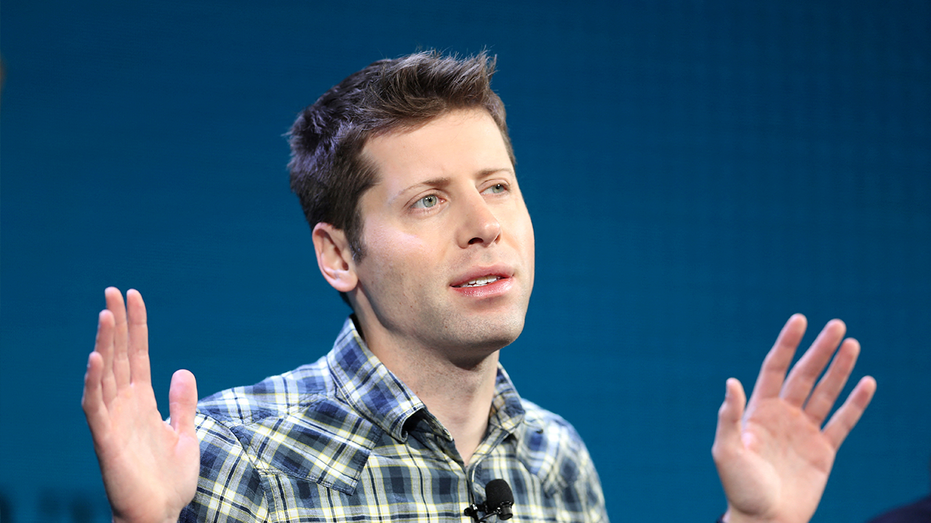
Sam Altman, President of Y Combinator, speaks at the Wall Street Journal Digital Conference in Laguna Beach, California, U.S., October 18, 2017. (REUTERS/Lucy Nicholson/File Photo / Reuters Photos)
In addition to hosting a fundraiser for Democratic presidential candidate Andrew Yang at his San Francisco home in late 2019, Altman has donated over $1 million to Democrats and Democratic groups, including $600,000 to the Senate Majority PAC, $250,000 to the American Bridge PAC, $100,000 to the Biden Victory Fund, and over $150,000 to the Democratic National Committee (DNC).
In 2014, Altman co-hosted a fundraiser for the DNC at the Y Combinator’s offices in Mountain View, California, which was headlined by then-President Obama.
During Altman’s tenure from 2014 until 2019 as the CEO of Y Combinator, an incubator startup that launched Airbnb, DoorDash and DropBox, he talked about China in multiple blog posts and interviews. In 2017, Altman said that he "felt more comfortable discussing controversial ideas in Beijing than in San Francisco" and that he felt like an expansion into China was "important" because "some of the most talented entrepreneurs" that he has met have been operating there.
POTENTIAL GOOGLE KILLER COULD CHANGE US WORKFORCE AS WE KNOW IT
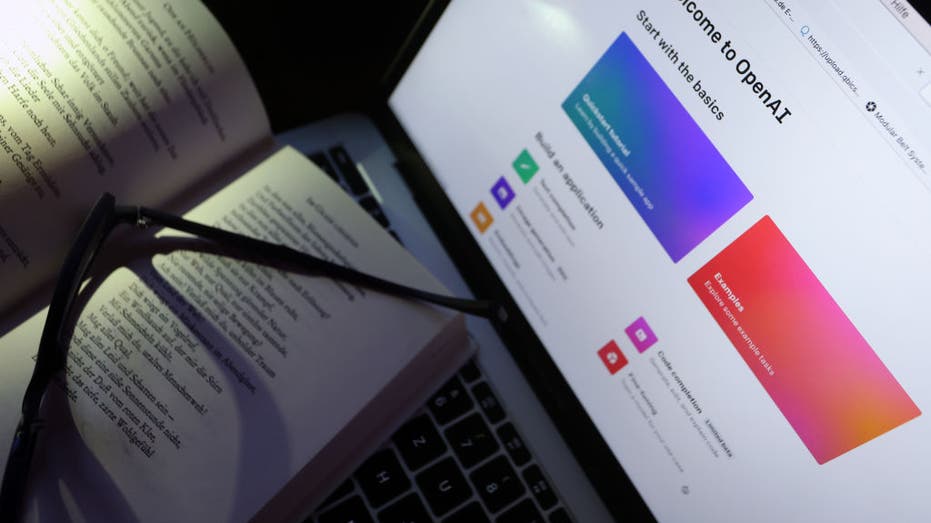
A book of poems lies on a screen on which the homepage of ChatGPT is called up. Artificial intelligence that writes greeting cards, poems or non-fiction texts - and sounds amazingly human in the process. The chatbot does more than just chat on the In (Karl-Josef Hildenbrand/picture alliance via Getty Images / Getty Images)
Altman also has ties to many prominent figures in the tech landscape.
Altman founded the San Francisco-based company OpenAI in 2015 with the help of big financial contributions from Silicon Valley’s heavyweights, including Tesla and Twitter CEO Elon Musk, PayPal co-founder Peter Theil and LinkedIn co-founder Reid Hoffman.
At the time, the company was a tiny nonprofit laboratory focused on academic research but has since grown into a tech powerhouse (valued at $29 billion) and a major disruptor within the industry. The company’s continuing strides in AI have prompted Google to declare a "code red" internally over fears that ChatGPT could displace its search engine monolith.
OpenAI raised around $130 million from 2016 to 2019, according to a Fox News Digital review of its tax forms. During that time, the group steered money toward numerous AI initiatives.
POTENTIAL GOOGLE KILLER COULD CHANGE US WORKFORCE AS WE KNOW IT
CEO of ChatGPT's parent company reportedly donated more than $500K to Democrats
FOX Business' Lydia Hu breaks down the controversy surrounding OpenAI CEO Sam Altman and their chatbot, ChatGPT.
OpenAI spent $10.5 million in 2016 establishing its research team, setting goals, and choosing its first projects, according to its tax forms. The group also launched OpenAI Gym Beta, published nearly half a dozen comprehensive research papers, held a self-organized machine learning conference, developed infrastructure, and built a safety team.
The following year, in 2017, OpenAI spent $28 million on initiatives such as demonstrating "reinforcement learning algorithms could be scaled to beat the world's best humans at a restricted version of an advanced, multiplayer game called Dota2." The nonprofit also participated in a report on the potential malicious uses of AI and published those findings, according to its tax forms.
In 2018, the group spent nearly $50 million when it launched the OpenAI Fellows and Scholars programs. They also trained a "human-like robot hand to manipulate physical objects with unprecedented dexterity and scaling its reinforcement learning algorithms to beat a team of 99.95th percentile Dota 2 players."
CLICK HERE TO READ MORE ON FOX BUSINESS
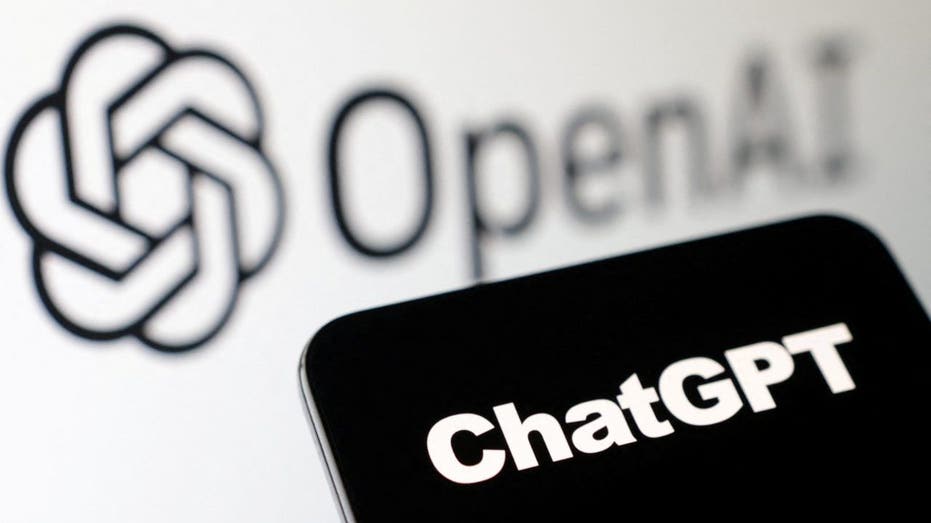
OpenAI and ChatGPT logos are seen in this illustration taken, February 3, 2023. REUTERS/Dado Ruvic/Illustration (Reuters Photos)
And in 2019, OpenAI put nearly $2 million toward creating "OpenAI, L.P. ("Partnership"), a new capped-profit company to help rapidly scale investments in compute and talent while including checks and balances in furtherance of the organization's mission. Through its control of the partnership, the group's reinforcement learning algorithms "became the first AI to beat the world champions in an esports game," that year's tax records state.
"These same algorithms were then used to train a pair of neural networks to solve a Rubik's Cube with a human-like hand, requiring unprecedented dexterity," the tax records state.
Altman's other nonprofit, OpenResearch, has received around $24 million since its inception, TechCrunch reported.





















